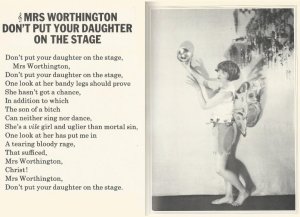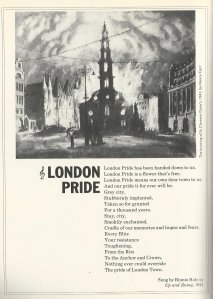Simanaitis Says
On cars, old, new and future; science & technology; vintage airplanes, computer flight simulation of them; Sherlockiana; our English language; travel; and other stuff
NOËL COWARD SAYS
NOËL COWARD was the most flamboyant wit of the 20th century. As confirmed in A Last Encore, he was also a rare combination of social satirist and patriot.

A Last Encore , edited by John Hatfield; Little, Brown and Company, 1973.
Sir Noël Peirce Coward’s life spanned almost three-quarters of the 20th century, 1899 – 1973. As a youngster, he was introduced to theater arts; as a teen, to English high society. Soon afterward, he said, “I am determined to travel through life first class.” And so he did.
We all enjoy the pre-mixed conflab of travel guide translations. In his musical comedy Sail Away, 1961, Coward put these into song.
Coward wrote 39 plays and 17 revues, musicals and an operetta, many of which he also produced or directed. No doubt a recurring aspect of these responsibilities was giving audition advice. The song “Mrs Worthington Don’t Put Your Daughter on the Stage,” 1935, displays Coward’s satirical wit in this regard. Oft-heard parts of it are relatively gentle: “I’m afraid on the whole/An ingénue role/Would emphasize her squint.” But then the auditioner gets positively exasperated with things.
During World War II, Coward gave up the theater and directed his talents to official war work. For a while, he ran the British propaganda office in Paris, but concluded, “if the policy of His Majesty’s Government is to bore the Germans to death I don’t think we have time.”
Then Coward turned to British Intelligence, though Winston Churchill persuaded him to give this up and return to morale-boosting entertainment. Coward did so with wartime tours of Europe, Africa, Asia and North America.
Coward’s dramatic naval film In Which We Serve won an honorary certificate of merit at the 1943 Academy Awards. On a lighter note, he wrote the song “Don’t Let’s Be Beastly to the Germans,” with the line “It was just those nasty Nazis who persuaded them to fight/And their Beethoven and Bach are really far worse than their bite.” His song “London Pride” dates from the same period.
For his revue Set to Music, 1939, Coward composed a patter-song, of sorts, in “I’ve Been to a Marvellous Party.” It contains wonderful lines such as “We knew the excitement was bound to begin/When Laura got blind on Dubonnet and gin/And scratched her veneer with a Cartier pin,/I couldn’t have liked it more.”
Coward was a homosexual, though this was never publicly mentioned. Homosexuality was a criminal offense in Britain until 1967. It was about then he observed, “There are still a few old ladies in Worthing who don’t know.”
Co-star Beatrice Lillie recalls they were on tour with adjoining hotel rooms. Feeling mischievous, she knocked on Noël’s door and in a gruff voice said, “Hotel detective. Have you got a gentleman in your room?” Noël’s rejoinder: “Just a minute, I’ll ask him.”
Another frequent co-star and pal throughout life was Gertrude Lawrence. Coward said of their theater partnership, “Every night, I’d would look across the balcony at her in that white Molyneaux dress and she would simply take my breath away.” For the play Tonight at 8:30, 1935, Coward wrote and both of them sang “You Were There.”
Could anything be more romantic?
In 1964, theater critic Kenneth Tynan confirmed Coward’s fame, “Even the youngest of us will know, in fifty years’ time, exactly what we mean by ‘a very Noël Coward character.’ ”
We’re a year beyond that now, and I know precisely what Tynan meant. ds
© Dennis Simanaitis, SimanaitisSays.com, 2015






Dennis,he definitely killed it as mr. Bridger in The Italian Job. I believe it was his last film.